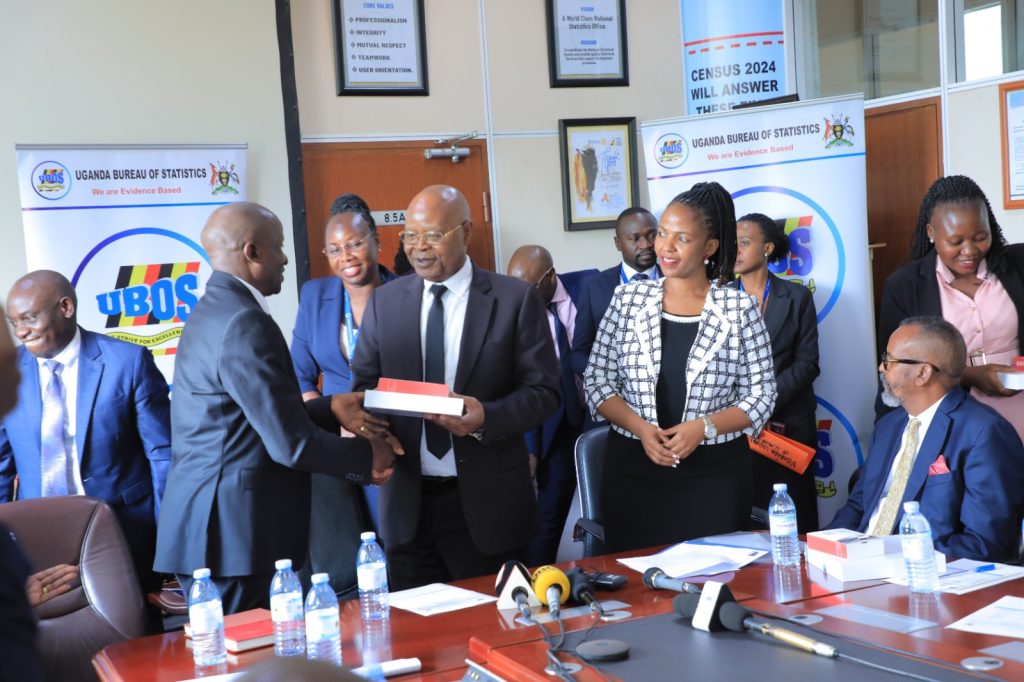In a strategic push to promote data-driven decision-making and enhance research capacity, the Uganda Bureau of Statistics (UBOS) has distributed 5,195 digital tablets to public universities, teacher training colleges, and major cultural institutions across the country.
The devices originally used during the recent National Population and Housing Census are now being repurposed under UBOS’s post-census resource utilization strategy to support statistical research and evidence-based planning.
Of the total allocation, 3,250 tablets have been handed to ten government universities and teacher training institutions, while the remaining 1,945 were given to cultural institutions and the National Council for Higher Education.
Key cultural beneficiaries include Buganda Kingdom 1,000 tablets, Bunyoro 550, Busoga 500, and Rwenzururu 120, while 75 tablets were assigned to the National Council.
Among the academic institutions, Makerere University received the largest share with 700 tablets, followed by Kyambogo University and Mbarara University of Science and Technology, which each received 350.
Other public universities also benefited under this initiative aimed at modernizing teaching tools and supporting advanced statistical work.
Speaking during the handover, Dr. Allen Kabagenyi, a UBOS Board Director who oversaw the distribution to public universities, emphasized the role of inter-agency cooperation in building a future-ready, data-savvy generation.
“This initiative is a testament to the power of partnerships between public institutions. In a country like Uganda, with one of the youngest populations globally, equipping our future leaders with the right tools is critical to achieving both national and global development goals,” she remarked.
UBOS Executive Director Dr. Chris Mukiza reiterated the Bureau’s commitment to ensuring that resources used during the census continue to benefit the country long after data collection is complete.
“We acquired 120,000 tablets to conduct the census, and as we committed earlier, we are ensuring that these resources continue to serve the country even after the census,” said Dr. Mukiza.
“Our expectation is that these tablets will strengthen data collection, teaching, and research in universities and higher institutions. We want to see a culture where statistics are not only produced but also actively used to influence development outcomes.”
Dr. Mukiza further encouraged academic institutions to take full advantage of the Bureau’s wealth of statistical data, pointing to its value in driving impactful research and shaping effective policy.
“We want to see a culture where statistics are not only produced but also actively used to influence development outcomes.”
The latest distribution comes on the heels of earlier large-scale transfers of tablets to government entities.
Earlier this year, UBOS redeployed over 23,000 devices to local governments for administrative data collection and another 35,000 to the Electoral Commission to bolster election preparedness.
